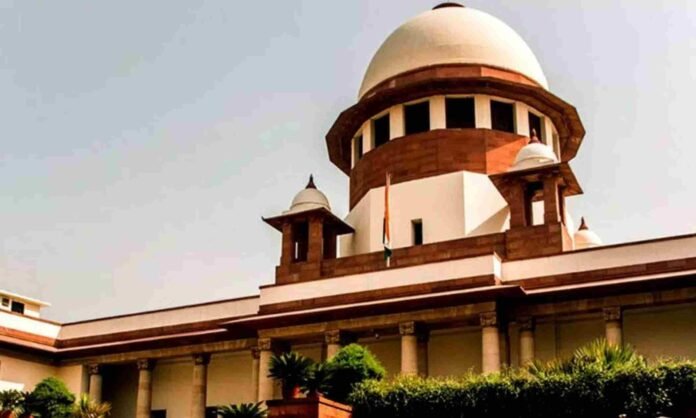The Supreme Court has held that the State Government was not competent to issue the notices for revising the assessment of the assessee-respondent and to demand the exempted tax only for the reason that the assessee-respondent has not submitted Form ‘C’ and ‘D’ in support of inter-State sale, trade & commerce.
The bench of Justice Pankaj Mithal has observed that the requirement of submission of Form ‘C’ and ‘D’ would apply prospectively after 11.05.2002 i.e., after the Finance Act of 2002.
The assessee-respondent, Prism Cement Limited, a public limited company, invoked the extraordinary writ jurisdiction of the High Court, challenging the three trade circulars issued by the Commissioner of Sales Tax, Mumbai on 27.05.2002, 20.07.2002 and 08.02.2007 respectively and various notices issued by the Deputy Commissioner of Sales Tax under Section 38 of the Bombay Sales Tax Act, 1959 for revising the assessments of the assessee-respondent made for the assessment years 2002-2003 to 2004-2005.
Consequentially, calling upon the assessee-respondent to pay/refund the exempted portion of the tax as per the provision of Package Scheme of Incentives 19933 on the sale of goods effected in the course of inter-State trade or commerce.
The writ petition has been allowed by the DivisionBench of the High Court by the judgment and order and it has been held that even after the amendment of Section 8(5) of the Central Sales Tax Act by the Finance Act, 2002 with effect from 11.05.2002, the State Governments are empowered to grant total or partial exemption from tax payable on inter-State sales covered under Section 8(1) as also under Section 8(2) of the CST Act in public interest, subject to the fulfilment of requirements of Section 8(4) of the CST Act.
The trade circulars and the notices impugned were quashed holding that the State of Maharashtra incorrectly proceeded to issue the same on the premise that the State Government had no power to grant total or partial exemption in respect of transactions covered under Section 8(2) of the CST Act after the 2002 amendment.
The State of Maharashtra introduced the PSI in 1993 so as to encourage the establishment of industrial units in backward areas and for that purpose envisaged to provide tax incentives, inter alia, including partial/total exemption from payment of sales tax under the BST Act as well as CST Act.
This scheme was announced in exercise of powers under Section 8(5) of the CST Act vide notification dated 05.07.1980. The scheme provided a specified time period and the maximum amount up to which units were entitled to avail such incentives.
The issue raised was whether the exemption from tax granted under the PSI 1993 issued under Section 8(5) of the CST Act as it existed at the relevant time read with eligibility & entitlement certificate could be withdrawn by the subsequent amendment to Section 8(5) of the CST Act by the Finance Act
of 2002 with effect from 11.05.2002 as the assessee-respondent failed to fulfil the requirements of Section 8(4) of the CST Act which mandated for submission of declaration in Form ‘C’ or ‘D’.
Ancillarily, whether the amendment could be applied retrospectively taking away the benefit which have accrued to the assessee-respondent prior to coming into force by the Finance Act 2002.
The court held that if a substantive right has accrued to a person, it cannot be taken away unilaterally without notice or an opportunity of hearing to the said person. Thus, after the amendment of Section 8(5), the Government was not authorised to pass a unilateral order affecting the rights of the assessee-respondent for claiming absolute exemption from payment of tax.
The court held that the assessee-respondent was not given any notice either cancelling the Eligibility Certificate or the Entitlement Certificate. Therefore, without revoking the certificates, the substantive right which had accrued to the assessee-respondent thereunder continues to subsist and does not get impacted by the subsequent amendment of Section 8(5) as there is nothing in the amended provision which provides for taking away such a right granted to the assessee-respondent.
Case Details
Case Title: The State Of Maharashtra & Ors. Versus Prism Cement Limited
Case No.: Civil Appeal No.13928 Of 2015
Date: 12/02/2025
Read More: Punjab & Haryana HC Grants Bail To Person Accused Of GST Evasion Worth Rs.116.53 Crores

